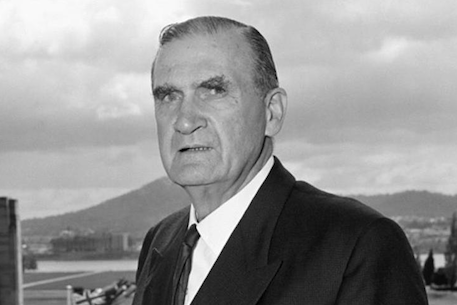
“Japan’s membership of AUKUS could hardly be more provocative to a country that suffered the indignity of Japanese control of its Taiwan province for 50 years from 1895 and its invasion of the mainland throughout World War II,” writes The Gadfly columnist ROBERT MACKLIN.
It was Deputy Prime Minister Richard Marles who first suggested that the inclusion of Japan in the AUKUS group was a natural “evolution” of the pact.
As such it was risible if understandable; Marles is not the sharpest knife in the Cabinet drawer.
But when it was adopted by Prime Minister Anthony Albanese – and then the American president Joe Biden – there was cause for concern. With the addition of Japan, AUKUS ceases to be a device to supply nuclear-powered submarines to Australia several decades in the future but a stark reminder of the oppressive powers that abused Chinese sovereignty in the 19th and 20th centuries.
Japan’s membership could hardly be more provocative to a country that suffered the indignity of Japanese control of its Taiwan province for 50 years from 1895 and its invasion of the mainland throughout World War II.
The notorious Massacre of Nanking – where the atrocities included 200,000 murders and 20,000 rapes of the civilian population – was but one of hundreds of outrages visited upon the Chinese people. Succeeding Japanese governments have apologised for their past atrocities, but the scars have yet to heal.
The Australian POWs in Changi and on the Thai-Burma railway had a taste of the cruelty of Imperial Japan, but the intervention of the first of our official Deputy Prime Ministers, John “Black Jack” McEwen produced a new dimension to our relations with that country.
McEwen was a very different figure from the pedestrian Marles. In the decade following the war, he and his departmental secretary, John Crawford, realised Britain would no longer be our major trading partner and turned instead to Japan.
As it happened, I joined McEwen’s small staff as press secretary in 1967 – shortly before Harold Holt took his fateful swim – and heard many times of the struggle to pass the 1956 Japan trade agreement against a united Labor opposition.
When we visited Tokyo in 1968, he was feted by the Japanese government as a national hero. His proudest boast, he responded, was that since signing the agreement, neither side had cause to refer to its written articles.
This congenial relationship, added to the American “supervision” of post-war Japan, meant that our promise, “Lest we forget”, was filtered through a financial prism. The Japanese “economic miracle” even brought protests in the 1980s that Japan was “buying Australia”.
Throughout that post-war period McEwen also maintained a lucrative wheat trade with Mao Zedong’s China despite his government’s warning of “the downward thrust of Chinese Communism” via the Vietnam War. However, the China redux of Xi Jinping on the one hand, and on the other a combination of the snide provocations from the zealot Scott Morrison, the militaristic “exceptionalism” of the US and the clownish cunning of Donald Trump, has produced a highly delicate diplomatic challenge.
To describe Japan’s introduction to the equation as a natural “evolution” is inappropriate at best and ignorant at worst. And to accuse China of seeking to limit freedom of shipping through the South China Sea – the gateway to China’s trade with the world – would be laughable were it not made by the US Navy and its Australian sycophants.
It also makes a mockery of the sensible formula for peaceful co-existence articulated by both Albanese and Foreign Minister Penny Wong, that “we will co-operate where we can, disagree where we must and engage in our national interest”.
Who can be trusted?
In a world of spin and confusion, there’s never been a more important time to support independent journalism in Canberra.
If you trust our work online and want to enforce the power of independent voices, I invite you to make a small contribution.
Every dollar of support is invested back into our journalism to help keep citynews.com.au strong and free.
Thank you,
Ian Meikle, editor




Leave a Reply